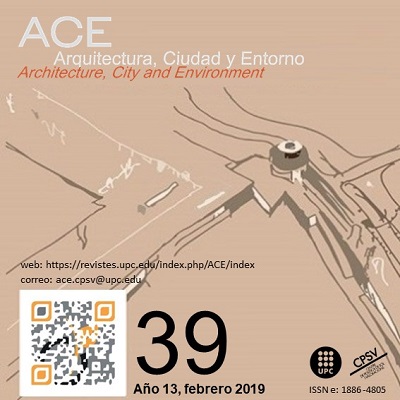Does economic diversity influences neighborhoods poverty rates? The case of Quito
DOI:
https://doi.org/10.5821/ace.13.39.5661Keywords:
Urban poverty, Residential segregation, EcuadorAbstract
Objective
Residential segregation in South American cities divides citizens according to their economic capacity. As a result, cities are formed by neighborhoods with differentiating urban characteristics depending on the economic group. In this research, economic diversity is studied as an urban characteristic, understood as the representation in a neighborhood of the greatest number of economic sectors, and its relationship with multidimensional poverty.
Methodology
The study was conducted taking the case of the city of Quito with a disaggregation level of parishes or neighborhoods, as is also referred to throughout the article. Economic diversity was calculated using the Shannon-Weaver methodology and multidimensional poverty was based on the methodology of Alkire and Foster (2007) and adapted to the 2010 Population and Housing Census. Descriptive statistics tools were applied to measure the possible association between the variables.
Conclusions
The analysis shows a direct relationship between the economic diversity in each neighborhood and its poverty rate.
Originality
The methodology applied allowed to find a degree of inverse association between poverty and economic diversity, its conclusions can be approached from urban or economic perspectives for the implementation of public policies at the subnational level.Downloads
Published
Issue
Section
License
| INTELECTUAL PROTECTION CRITERIA |
At this moment, it is count with the "Oficina Española de Patentes y Marcas", while global protection it is being processed by the World Intelectual Property Organization (OMPI/WIPO). Nevertheless the International Standard Serial Number Office (ISSN) has given the following numbers ISSN: 1886-4805 (electronic version) and 1887-7052 (paper version). All articles will be peer reviewed, using double blind reviewing. |
| COPYRIGHT |
The article contents and their comments are authors exclusive liability, and do not reflect necessarily the journal editor commitee's opinion. All ACE published works are subject to the following licence CC BY-NC-ND 3.0 ES http://creativecommons.org/licenses/by-nc-nd/3.0/es/ It implies that authors do not hold nor retain the copyright without restrictions but only those included in the licence. |





































